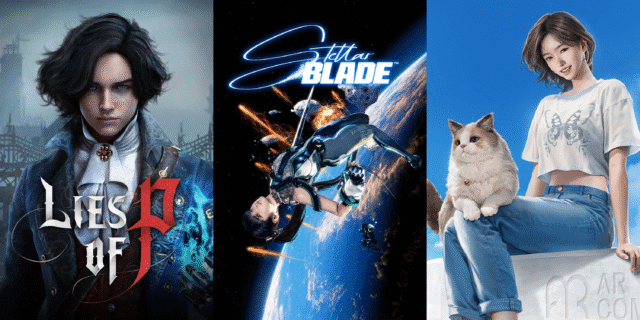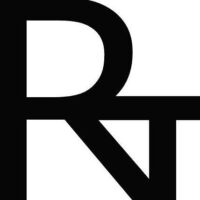I saw an article saying that NCSOFT might be removed from the MSCI index. While NCSOFT employees or shareholders would be extremely upset, personally I felt it was quite fortunate. It’s not that I have any grudge against NCSOFT like someone who was betrayed by them (actually, as soon as I heard about Trickster M’s release, I had an intuition it would fail and sold all my shares to survive). It’s because I strongly believed that NCSOFT’s trademark “user-hostile operations” have been eating away at our country’s game industry.
 NCsoft Headquarters (Source: Yonhap News)
NCsoft Headquarters (Source: Yonhap News)
Stock Price Collapse, Operating Deficit, ‘NCSOFT in Danger’ Returns After 10 Years
NCSOFT has started to appear in newspaper headlines frequently again. As is the case everywhere, frequently appearing in newspapers isn’t usually a good thing. The Lineage M Sigil incident, the failure of Throne and Liberty (TL), the failure of Project H and Lineage super account allegations, and now the 2024 earnings shock. Over the past few years, NCSOFT has lost users’ trust with each major issue and has been on a downward path. At this point, anyone can see that these aren’t isolated incidents but indicate fundamental problems with NCSOFT. In that sense, the recently announced 2024 operating deficit can be seen as karma being settled. However, recent articles about NCSOFT only point to “development capability issues,” “failure to adapt to market changes,” and “lax management” – but are these really the problems?
NCSOFT: The Leading Representative of Customer-Hostile Operations
NCSOFT never had a great image to begin with. Since the PC subscription fee era, they caused various incidents with Lineage, but during that period, they also released technically sophisticated games like “AION” or “Blade & Soul” that gave Korean gamers a sense of national pride. However, starting with Blade & Soul’s Silverfrost Mountains update, they began introducing exploitative business models with double and triple charging, which reached its peak and went out of control with the release of Lineage M in 2017. NCSOFT’s customer-destructive practices, which had been hidden from the general public because the Lineage series was “their own league,” were nakedly exposed to the public during the “Lineage M Sigil Rollback Incident” in early 2021.
When the company arbitrarily rolled back the sigil system updated in Lineage M, and when a user who had spent over 100 million won on this system went to protest only to be turned away without even an apology, and this was revealed in a YouTube video, most Korean game users nodded in understanding. This reaction stemmed from the disillusionment with Korean game companies that had been obsessed with gacha/loot box business models and repeatedly releasing generic mobile games. However, NCSOFT either didn’t take this seriously or didn’t care at all, as they proceeded to release Trickster M and Blade & Soul 2 in succession, shocking the market even more. With the subsequent release of Lineage W, it was revealed that the “mild business model” announced in the pre-release showcase was just a lie, once again giving the market a fresh shock that “customers can be manipulated in this way too.”
If NCSOFT Had Been a US Company, It Would Have Long Disappeared from the Market
If NCSOFT had operated in the US or other developed countries, it would have already disappeared, either by receiving astronomical fines from the government or by losing class-action lawsuits and paying enormous compensation. No, even before that, it would have been driven out of the market by being thoroughly shunned by consumers. For example, EA introduced a random loot box payment model in Star Wars Battlefront II, faced tremendous backlash from users worldwide, and had to withdraw it after losing $3 billion in market value in just one week. In Japan, when Cygames’ “Granblue Fantasy” faced controversy over excessive charging to draw a specific character “Anchira,” 2,000 people filed a collective complaint with the Consumer Affairs Agency. As a result, the “spark system” (guaranteeing desired characters after spending over 90,000 yen) was introduced, and strong self-regulation was implemented across the entire Japanese game industry.
Due to their nature, laws and systems in any country struggle to keep up with rapid market changes. In such situations, direct consumer boycotts and protests become even more powerful restraining mechanisms.
NCSOFT is a Monster Born from Korea’s Deformed Game Industry
In this sense, users are partly responsible for the current deformed Korean game market. Despite consistent criticism about the opacity and gambling nature of probability-based items and management’s unresponsive operations, laws and systems remained unchanged, as they typically do. Even users resigned themselves, saying, “They’re all the same anyway.” This is why the industry became deformed, with companies like NCSOFT targeting only a very small number of heavy-spending users and focusing solely on the domestic market.
But now, Korean gamers have changed. Users have started asking “Can we trust this game company?” instead of “How much did you spend?” and have begun taking active steps when game companies or regulatory agencies act inappropriately. The fact that 210,000 gamers participated in the constitutional appeal regarding the constitutionality of the Game Law in 2024, following the truck protest in 2021, clearly shows that Korean users’ awareness and behavior have changed significantly.
 From left to right: Neowiz’s ‘Lies of P’, Shift Up’s ‘Stellar Blade’, Krafton’s ‘inZOI’ (Source: Promotional images from each game company)
From left to right: Neowiz’s ‘Lies of P’, Shift Up’s ‘Stellar Blade’, Krafton’s ‘inZOI’ (Source: Promotional images from each game company)
Companies, especially mid-sized and smaller ones, are also changing. As they can no longer rely solely on the domestic market (or more precisely, the domestic+Chinese markets), they’re looking for breakthroughs in overseas markets and console package markets, achieving some success. Nexon is gradually changing after years of trial and error, starting with Dave the Diver (although there’s still a long way to go with games like Maple Story). NEOWIZ with “Lies of P,” Shift Up with “Stellar Blade,” and Krafton with their recently released package game “Inzoi” are all receiving good reviews.
They’ve also started paying more attention to users in terms of operations. Smilegate’s Lost Ark is already famous for successfully improving its image and making a comeback through Director Keum-kang Seon’s user-friendly communication and operations. Following this, “communication with users” has become an important topic for major game companies like Nexon and Netmarble. Small company APID Games even created an entertainment show out of their Trickster Revive 1st anniversary meeting, causing a significant response.
Of course, while other game companies are changing, our dear NCSOFT consistently shows its class by steadfastly continuing to play with users during live broadcasts.
Korean Game Industry Can Only Thrive if NCSOFT Dies
A market is being created where companies that have lost trust die out, and only those that compete with transparent payment structures and gameplay survive. The market situation has also changed so that structures that deceive users and just extract money no longer work. User preferences are becoming increasingly diversified, and competition with foreign companies, represented by the rise of Chinese companies, is becoming fiercer. At this point, NCSOFT’s downfall, still unable to get its act together, is not coincidental but inevitable, and rather proves that the Korean game industry as a whole is improving to match international market standards.
What company in the world not only mistreats its customers but also openly antagonizes them? Department stores have diamond platinum whatever programs for customers who spend 300 million won a year and will even go to customers’ homes to pick them up. But NCSOFT won’t even meet a customer who spent 600 million won on their game and chases them away at the door? This is unimaginable in a normal company.
It’s truly fortunate that NCSOFT, which accomplished this unimaginable feat, is going downhill. Because it means the future of the Korean game industry is bright.
